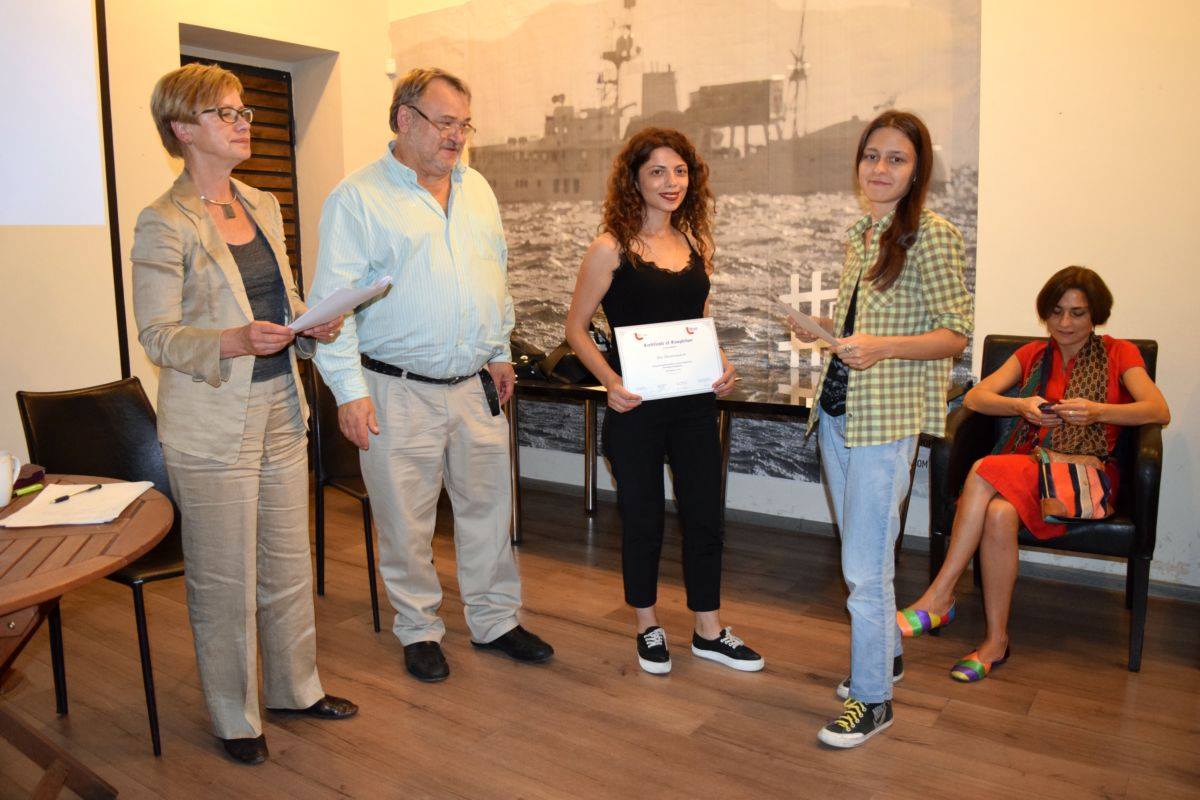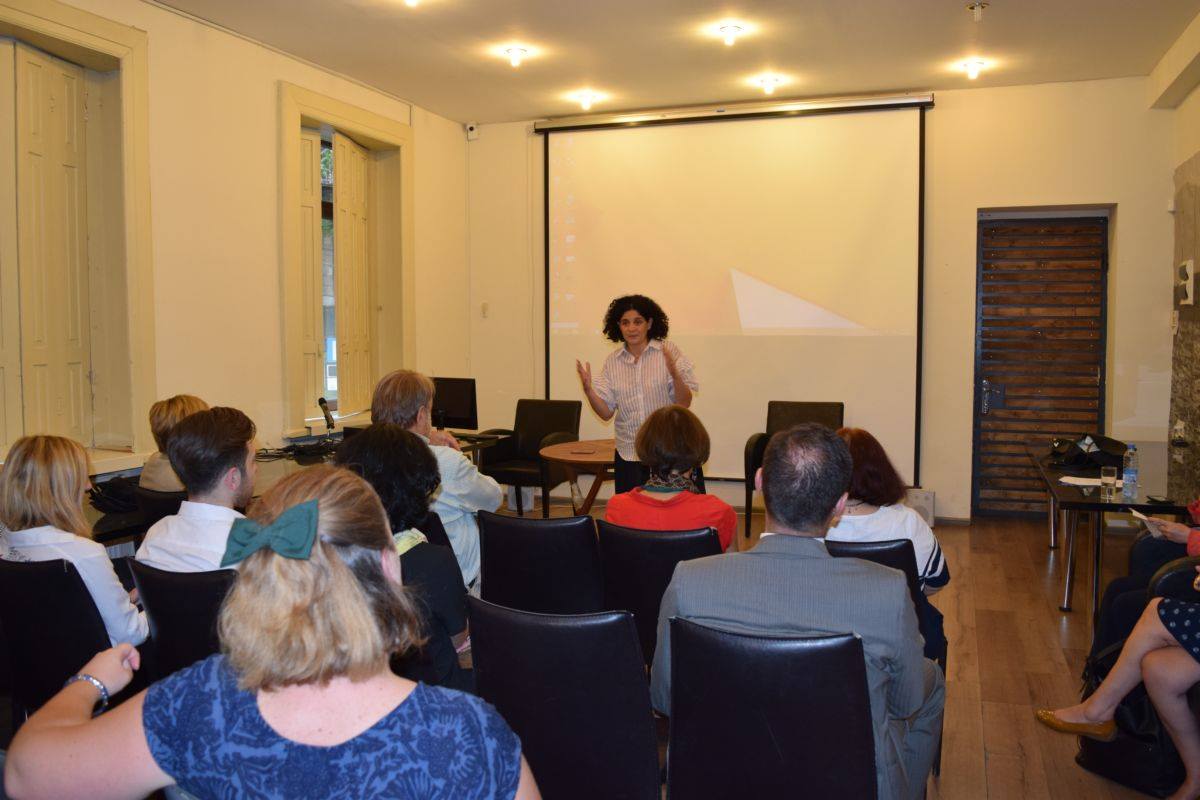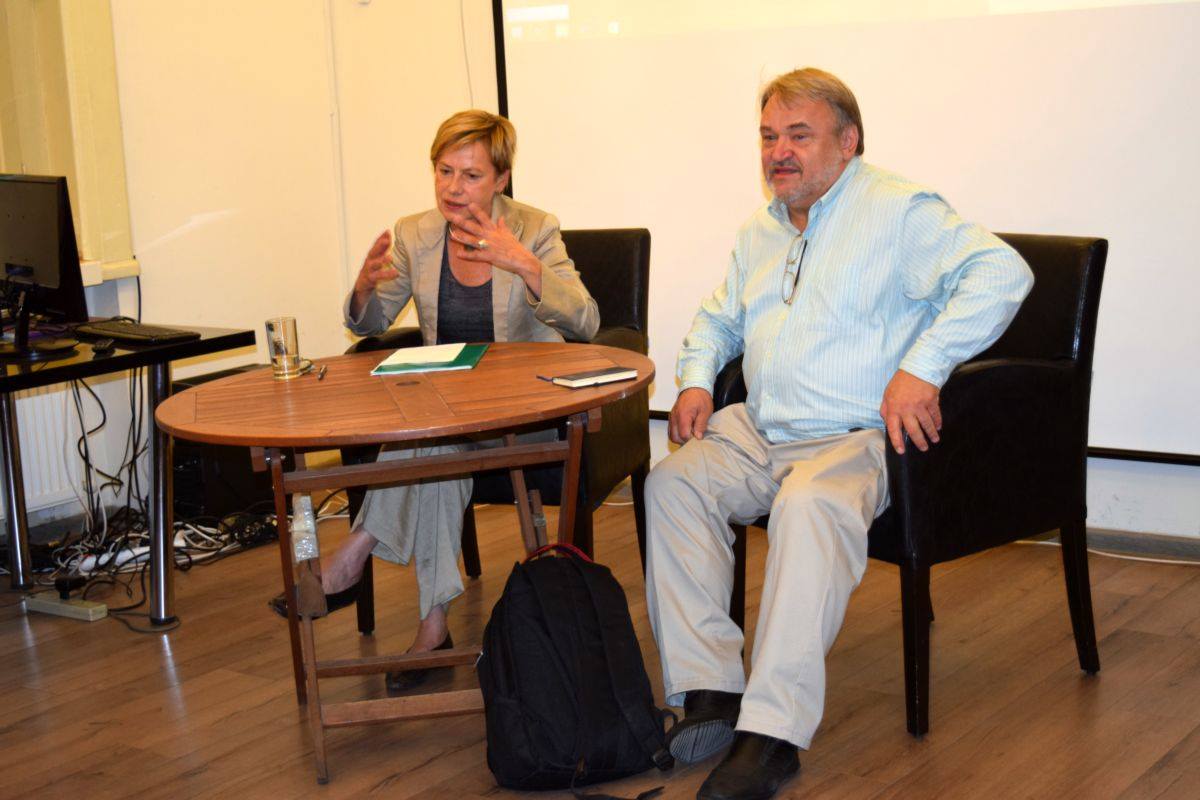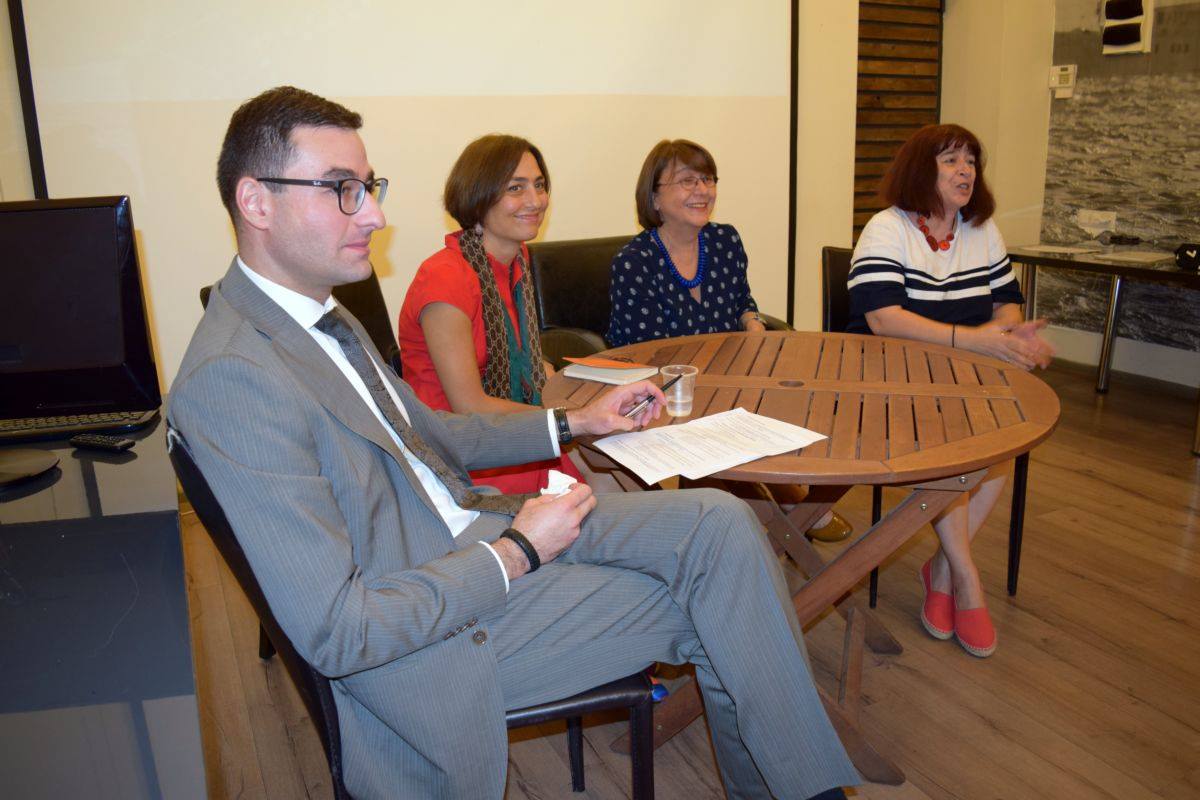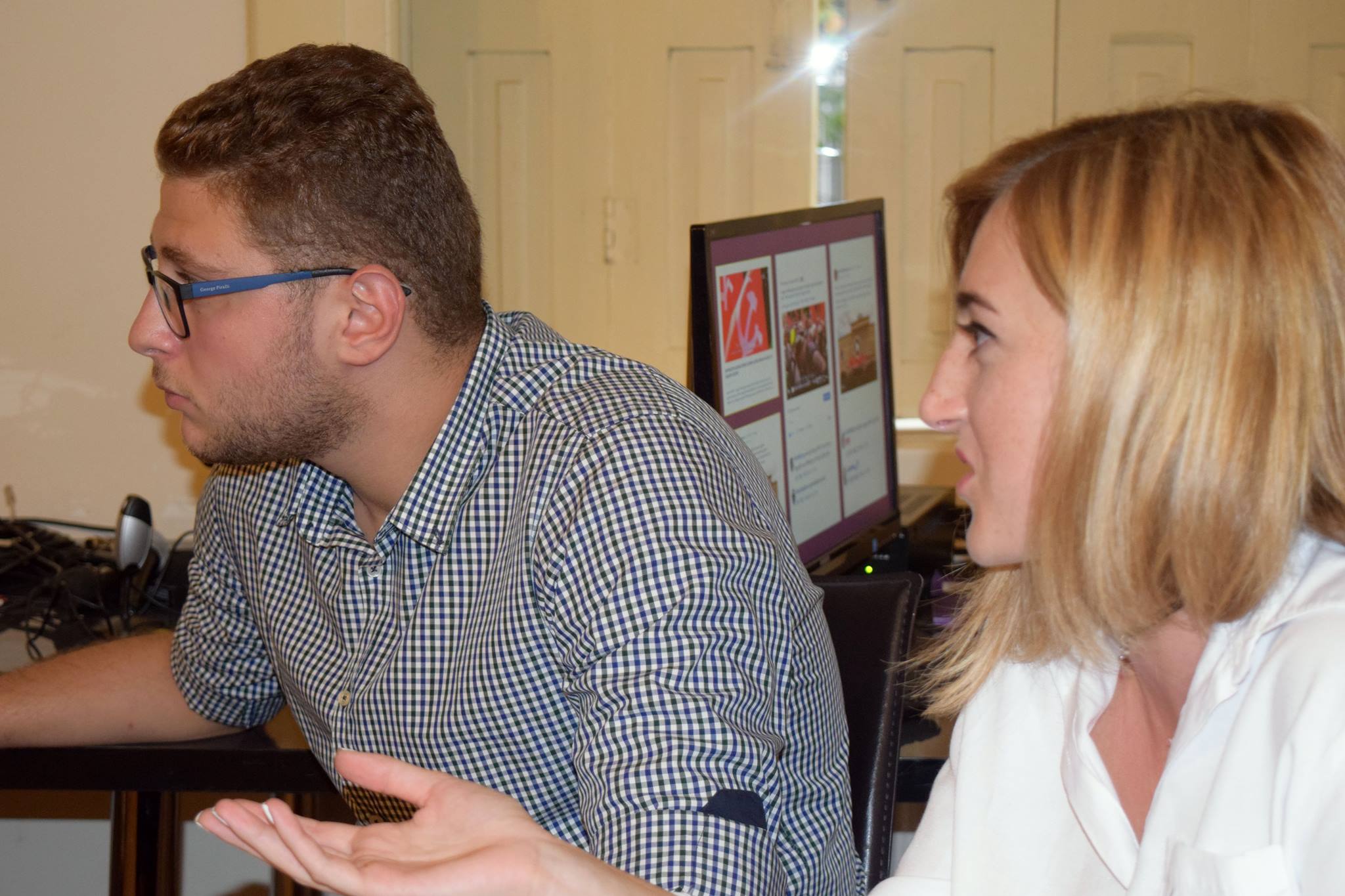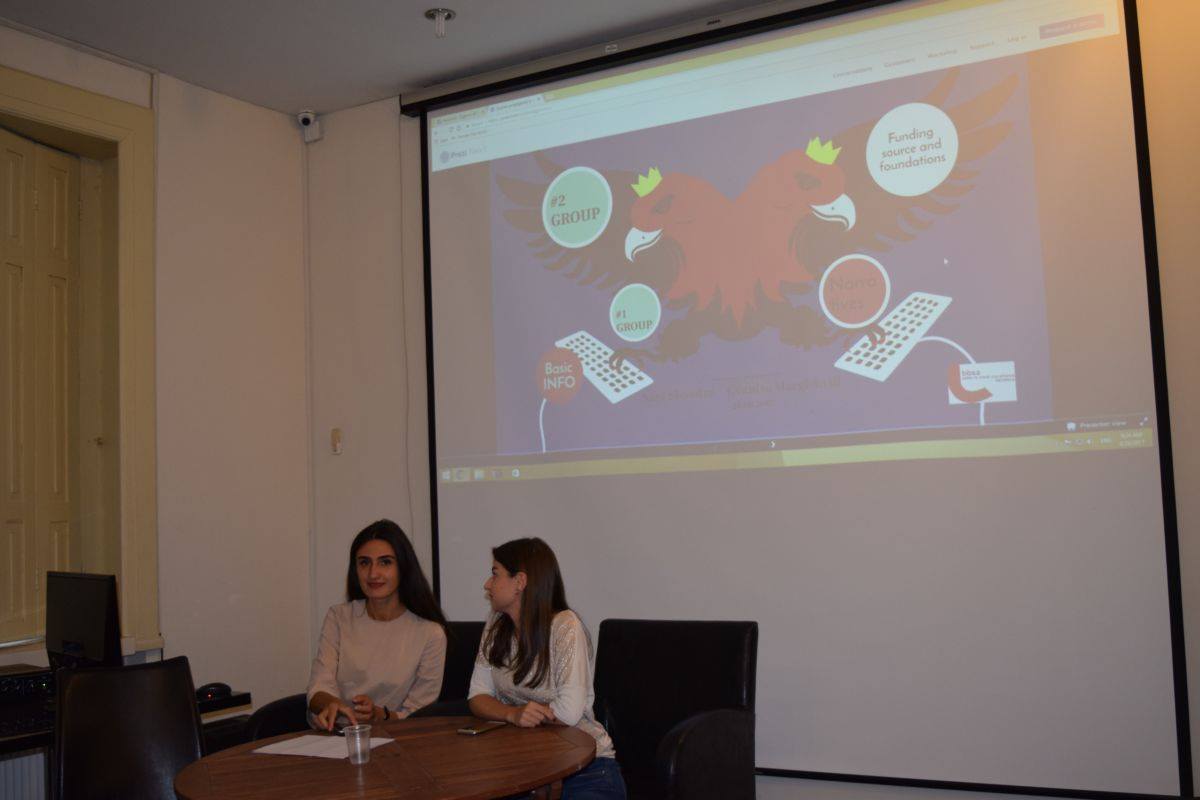Young Journalism Prize in Revealing Propaganda
The competition for the best student story on revealing propaganda found it’s winners and contributors. According to the independent jury, two stories were awarded with 200 Euro prizes and appointed as the best works: Modern Cold War: Russian Propaganda in Georgia produced by Ekaterine Kharbedia and Tatia Shaishmelashvili and Georgia in the Footsteps of Russian Propaganda, by Mariam Geliashvili. All other participants were honored with money prize awards in an amount of 50 Euro.
The awards ceremony for the best story on Russian propaganda was held on Monday, September 25, at the Frontline Club Georgia.
The competition was held exclusively for training participants. Before starting to work on their stories, journalism students from undergraduate and graduate programs participated in an intensive training conducted by Black to Baltic Sea Alliance and Investigative Journalism Center “RE: Baltika”. During the training participants acquired skills in investigative journalism that are necessary to identify fake information and propaganda and to establish precise facts instead.
After the training course, the participants worked in teams and with instructors. The work process included generating ideas, updating them, reporting, verifying information, editing and publishing materials.
This is the first time this type of event is held for journalism students. It’s important that journalism students are encouraged to develop in-depth stories. “I am pleased and privileged to run this project. All pieces talked about a serious issue-hybrid war and Russian propaganda in Georgia that is not being sufficiently discussed in our society,” says Tiko Tsomaia, program coordinator.
Prize fund for the competition was 1000 EUR.
All submissions were reviewed by an independent jury. Jury members were Jana Javakhishvili, Professor at Ilia State University and Sophiko Megrelidze of the Associated Press from Georgia and Sarmite Elerte, Chair and Alex Gregorievs, Vice- chairmen of the BBSA board.
The jury evaluation criteria were: importance of the issue, quality of research and difficulty, originality, the effort, narrative style of the story.
Competition materials can be viewed here: http://bbsa.ge/our-choice-of-top-10-database-optimization-3/
Brief description of competition materials:
Pro-Russian forces in Gori
Authors: Tatia Giunashvili, Billi Isiani, Guga Archvadze
Our story “Pro-Russian Forces in Gori” aims to point out pro-Russian activities in Gori. We portrayed two citizens with different ideologies. Aleko Lursmanashvili represents Communist Party of Georgia in Gori, and Gvantsa Doluashvili is one of the organizers of European Days in Gori.
Story features 9th of May demonstration of Communist Party in Gori, several symbols of the Soviet Union, Stalin Avenue, etc.
Viewers will notice a sharp expression of Russian propaganda that is rooted not only in Gori, but also around the country.
Modern Cold War: Russian Propaganda in Georgia
Authors: Tatia Shaishmelashvili, Ekaterine Kharbedia
This article concerns the activities of the pro-Russian organization “Russian-Georgian Youth Union”. This organization was established in February 2017. With the support of the Russian Russkiy Mir Foundation, they organize various events, including a creative contest for schoolchildren about the life and work of the Russian diplomat and dramatist Alexander Griboyedov. The Russian-Georgian Youth Union has also invited some members of the Russian biker club “Night Wolves,” well known for its close ties with Vladimir Putin. Irakli Kipiani is the chairman of the Russian-Georgian Youth Union. We were unable so far to investigate the source of the financial support for the organization.
Georgia in the Footsteps of Russian Propaganda
Author: Mariam Geliashvili
After the collapse of the Soviet Union, the Russian Federation’s influence on former Soviet republics was weakened. Russia used a hybrid war to restore the lost influence, which means that besides military force, it actively uses its economic, financial, political and information levers. In recent years, the Kremlin is increasingly waging an information war using propaganda. One of the keys to hybrid war is anti-Western propaganda – incorrect and false information about Western European countries and the US. Russian propaganda is expanding particularly in those countries that are still not members of the Western world, but openly desire Euro and Euro-Atlantic integration. That’s why Russia’s main targets in the region are Ukraine and Georgia.
Russian Propaganda in Georgian Social Media Space
Authors: Nani Sisvadze, Gvantsa Margishvili
Anti-Western and Russian propaganda is one of the central problems in the world. Russia tries to gain influence by many ways and create an anti-West mood in society. The Kremlin actively uses social media for propaganda purposes.
There are different groups in Georgian Facebook space, where users organize and share Russian narratives. Two noisy groups with a relatively large number of members are საქართველო და რუსეთი/Грузия и Россия (Georgia and Russia) and Грузия – Россия (Georgia and Russia). Both group’s main aim is to portray the West as an enemy of Georgia and Russia as a kind neighbor.

